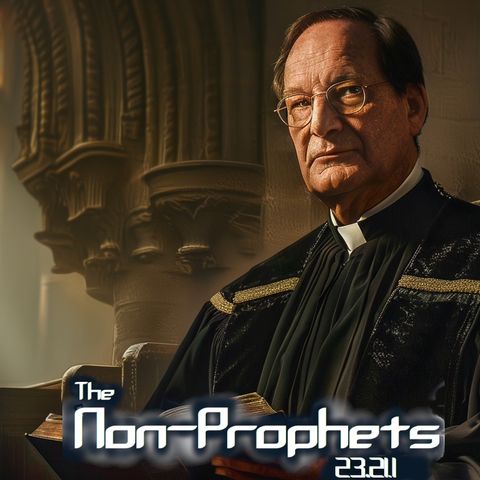Justice Alito Bemoans Loss of Freedom of Religion

Scarica e ascolta ovunque
Scarica i tuoi episodi preferiti e goditi l'ascolto, ovunque tu sia! Iscriviti o accedi ora per ascoltare offline.
Descrizione
Justice Alito warns of declining support for freedom of speech on college campuses NBC News, By Lawrence Hurley, on May 11, 2024 https://www.nbcnews.com/politics/supreme-court/justice-alito-warns-declining-support-freedom-speech-college-campuses-rcna151817 In a recent commencement speech at Franciscan...
mostra di piùNBC News, By Lawrence Hurley, on May 11, 2024
https://www.nbcnews.com/politics/supreme-court/justice-alito-warns-declining-support-freedom-speech-college-campuses-rcna151817
In a recent commencement speech at Franciscan University of Steubenville, Justice Samuel Alito sparked a discussion about the current state of free speech in the United States, particularly focusing on college campuses. Alito, addressing a crowd at this Catholic college in Ohio, expressed his concern that free speech is in sharp decline, especially in academic settings. This speech comes amidst a backdrop of national debates on free speech, often highlighting the tension between open expression and social and political unrest.
Justice Alito's remarks seemed to indirectly reference ongoing controversies, such as the unrest over Gaza, to underline his point. He suggested that the erosion of free speech is particularly evident on college campuses, which he believes should be bastions of open dialogue and debate. However, Alito did not provide specific examples or elaborate on the exact nature of the threats he perceives. This lack of detail has led to speculation and critique, with some questioning whether his speech was more about defending particular viewpoints rather than an unbiased defense of free speech.
The setting of Alito's speech is noteworthy. Franciscan University, known for its strong Catholic identity, may not necessarily reflect the diversity of thought found on many secular campuses. Critics argue that Alito's choice of venue and his broad statements on free speech could imply a bias towards protecting speech that aligns with certain ideological or religious perspectives. This has raised questions about whether Alito is advocating for a truly open discourse or merely for the freedom to express views that align with his own.
Additionally, Alito's track record on the Supreme Court has been scrutinized in light of his speech. His voting history often shows a complex relationship with free speech issues. For instance, in 2011, Alito was the sole dissenter in a case that upheld the Westboro Baptist Church's right to picket military funerals, a decision grounded in free speech protections. Alito argued that such actions constituted a vicious verbal assault rather than protected speech. This decision suggests that Alito's commitment to free speech may have boundaries, particularly when it comes to speech that he views as harmful or offensive.
Moreover, Alito often advocates for holding onto traditional values, even in the face of changing societal norms. This perspective is evident in many of his opinions, where he frequently supports decisions that uphold religious and conservative values.
In discussing the broader implications of Alito's speech, it is essential to consider the current political and social climate in the United States. The nation's highest court has become a battleground for deeply divisive issues, and justices' public comments are increasingly seen as reflections of their ideological leanings. Alito's speech, therefore, can be interpreted as part of a larger narrative about the role of free speech in a polarized society.
Ultimately, Justice Alito's commencement speech serves as a provocative entry point into the ongoing debate over free speech in America. While his concerns about the erosion of free speech align with a broader conservative discourse, the lack of concrete examples and the specific context of his speech invite critical examination of his motives and the implications of his rhetoric. This speech underscores the enduring complexity and contentious nature of free speech issues in the modern era, particularly as they intersect with politics, religion, and education.
The Non-Prophets, Episode 23.21.1 featuring Cynthia McDonald, Infidel64, Cindy Plaza and Kelley Laughlin
Informazioni
| Autore | Atheist Community of Austin |
| Sito | - |
| Tag |
Copyright 2024 - Spreaker Inc. an iHeartMedia Company
